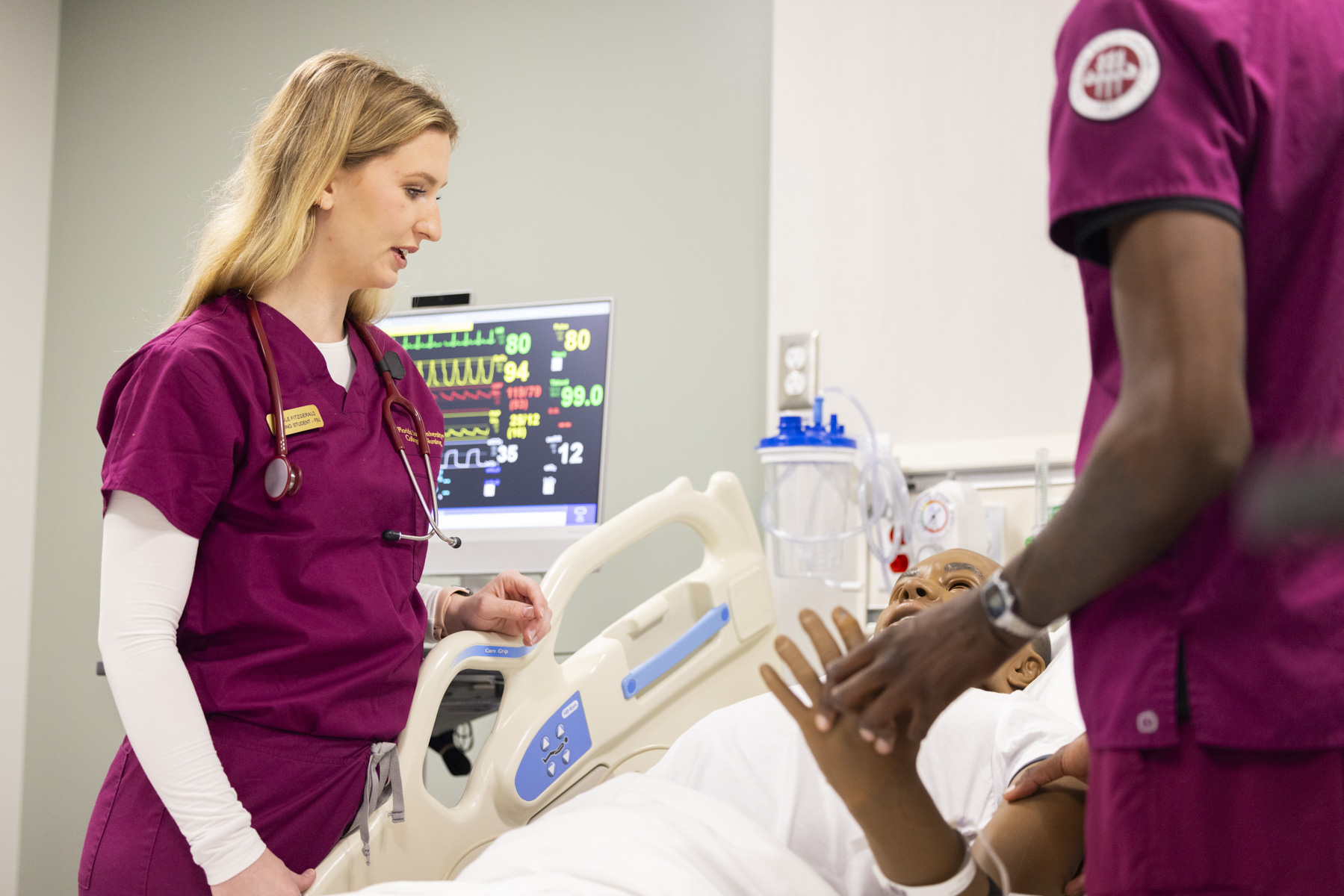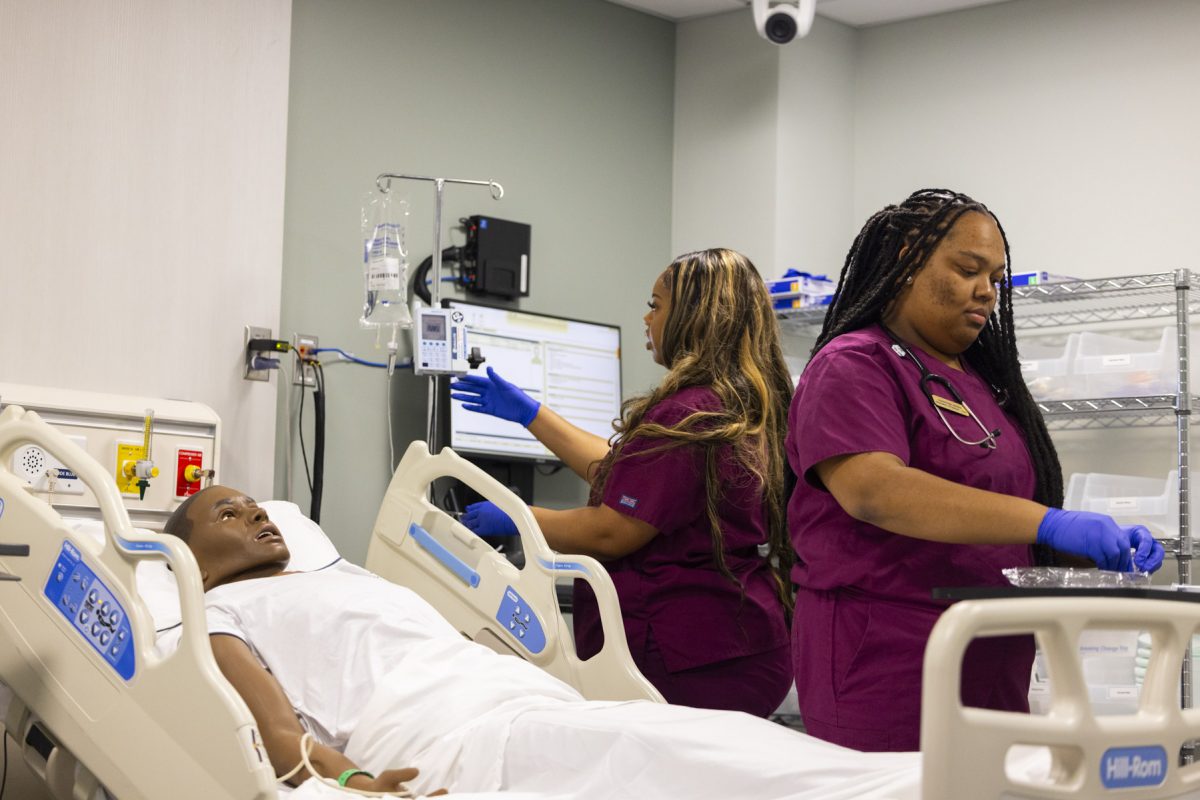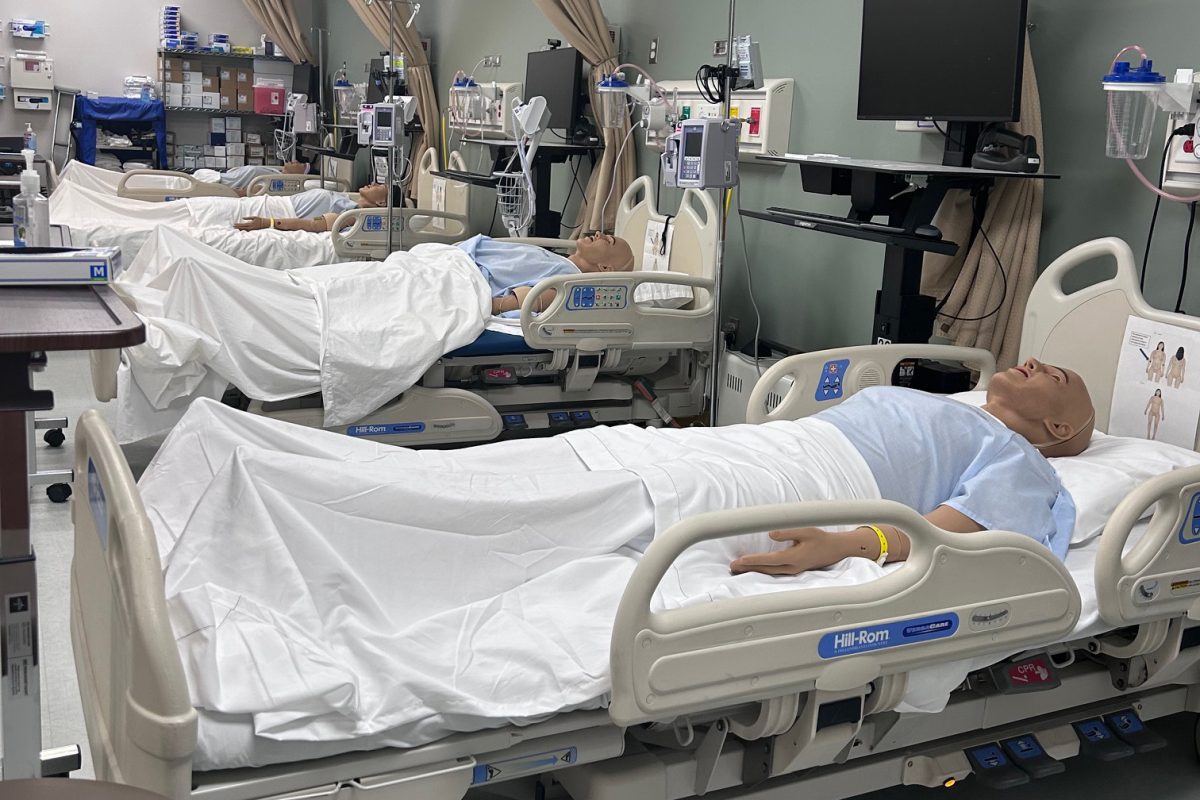
Florida State University’s College of Nursing officially opened the doors to its new nursing simulation lab at the start of the spring 2025 semester. The new state-of-the-art training facility is designed to connect theory with real-life scenarios, equipping the next generation of nurses with essential skills needed for clinical practice. The lab serves as an addition to the existing simulation lab in Duxbury Hall.
The 5,000-square-foot facility, located in the lower level of the Rogers Building, represents a major step forward in health care education at FSU. Equipped with cutting-edge technology and realistic medical rooms, the lab allows nursing students to practice essential skills, build clinical confidence and respond to high-stakes scenarios in a controlled and supportive space. The lab includes one-way instructor control rooms and multi-student debrief rooms with video playback capabilities that allow instructors to coach students through real-time medical scenarios, receive immediate feedback and grow their skills.
“The expansion of a new simulation lab answers a critical need in our region and across the nation for well-prepared, practice-ready nurses,” said Jing Wang, dean of the college. “With the growing demand for nurses in the workforce, the College of Nursing has taken bold steps to address the shortage by increasing student enrollment. The growth created a need for additional clinical simulation space.”
At the heart of the simulation lab is a focus on student-centered learning. High-fidelity simulator patients called “manikins” replicate everything from pediatric asthma exacerbations to complex birthing scenarios. Students engage in small-group exercises that mirror real-life patient care, from administering IV medications to escalating care in emergency situations like respiratory failure or sepsis.
The lab supports a wide range of nursing instruction, including pediatric, medical-surgical and foundational skills. Technology is deeply integrated into each step of the training process. Instructors monitor student performance from centralized control rooms using voice and video feeds from eight exam rooms to provide immediate feedback. Simulations often include standardized patients and artificial intelligence-driven systems, which offer predictive learning models and adaptive feedback in real time.
AI tools are helping to eliminate barriers between classroom and real-life learning experiences, said Director of Simulation Carla Dormeus.
“AI is transforming health care training in our simulation lab by creating immersive, data-driven scenarios that bridge the gap between theory and practice,” she said.
Key equipment includes hospital-grade tools like IV pumps, crash carts, ventilators and electronic health record stations. They contribute to an experience nearly indistinguishable from professional clinical environments. Faculty use structured assessment tools and debriefing sessions to help students reflect on their performance and refine their clinical judgment.
The lab is also designed to accommodate high-risk, low-frequency scenarios that students might not experience during traditional clinical rotations. For example, in a multi-part pediatric asthma simulation, students must assess, intervene, educate families and respond to a rapidly deteriorating child’s respiratory function while coordinating care and performing critical handoffs.
The new lab has proven especially beneficial for the College of Nursing faculty.
“The simulation lab provides a realistic, risk-free environment where students can develop clinical skills, practice critical thinking and build confidence through hands-on learning and high-fidelity simulations,” said Donna Johnson-Byrd, associate teaching professor of Pediatrics. “As an instructor, seeing students grow in confidence and competence right before my eyes is incredibly rewarding. The simulation lab has transformed the way I teach. It allows me to create realistic, supportive learning environments where students can make mistakes, ask questions and truly learn. It’s not just about skill-building. It’s about shaping future nurses who are ready to lead with both knowledge and compassion.”
Rylan Douthett, clinical assistant professor and interim assistant dean for Undergraduate Programs, highlighted the lab’s significance, saying, “The College of Nursing is boldly rising to address the nursing shortage across the state of Florida and beyond. The expansion of our simulation lab aligns with our significant increase in undergraduate enrollment. The use of high-fidelity simulation serves to expose our students to complex scenarios that bridge the gap between academia and clinical practice.”
Architects Lewis + Whitlock (ALW) collaborated closely with the College of Nursing to reimagine the underutilized space as a high-performing clinical teaching environment. Navigating challenges such as low floor-to-floor heights and existing infrastructure, which made it harder to perform electrical and HVAC adjustments, the design team maximized functionality while introducing finishes and lighting that evoke a calm, healing atmosphere — sea green accents, parchment-colored walls and contemporary fixtures nod to the aesthetics of modern health care spaces.
While the benefits to nursing education are numerous, the physical transformation itself is a notable achievement. The basement of the building, which once housed elements of the Department of Earth, Ocean and Atmospheric Science, underwent a complete renovation in partnership with Southern Standard Construction and ALW. Mechanical and electrical systems were brought up to current code, accessibility issues were resolved, and the new simulation labs were outfitted with durable rubber health care flooring, acoustical paneling and crash rails to accommodate mobile hospital beds, creating a realistic and adaptable setting for training the next generation of health care professionals.
The simulation lab isn’t the final step in FSU’s vision for pioneering nursing education. Plans are already underway to expand simulation capacity even further, with efforts focused on creating additional space and resources to support advanced, hands-on learning opportunities for students.
As demand for well-trained nurses continues to rise, the FSU College of Nursing’s investment in experiential education ensures its students are not just ready to graduate — they’re ready to lead in nursing and health care.








